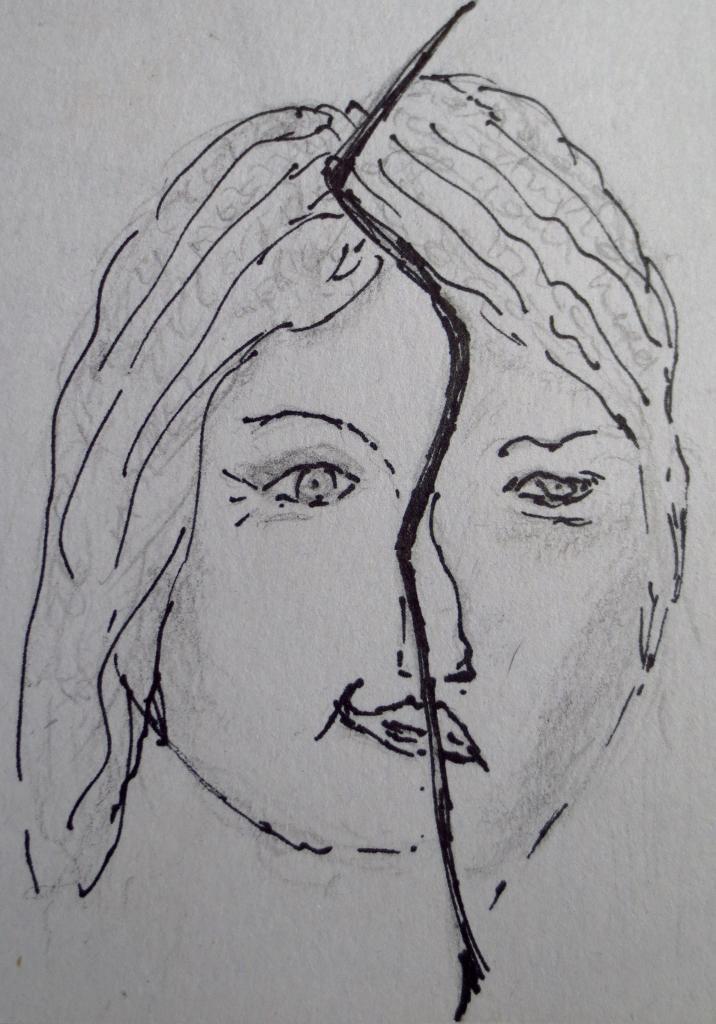So What Did You Do?
5 February 2016I Don’t Want These Suckers!
12 February 2016I’m not sure whether the change of self-perception happened immediately after that morning in the hut, or if it was a slow dawning. All I know is that there was no discussion in my mind, no searching, it was a fact: I am ugly.
Looking at this from a position of hindsight and experience, there is a certain logic to that thought. Something bad has happened to you, ergo you are ugly. Bad things don’t happen to beautiful people. The simple uncompromising logic of a child.
This belief came to light when I was told to write a letter to a cousin in England, age eight. “I’m quite ugly,” I wrote, “with lots of freckles, green eyes and straight white hair.”
My mother laughed, and refuted my statement. I didn’t believe her, and although I amended what I had written, the lie remained as my truth.
It also followed that I was not only ugly, I was also bad. I didn’t want to be, didn’t mean to be, but I was. It didn’t help that we lived in a remote village, and as an only child I was left to play alone much of the time. I imagined I had a brother called David, who was my defender. I actually do have a half-brother called David, but didn’t know that at the time! The feeling of isolation and rejection intensified as I was no longer allowed to play with the children in the camp, my mother became overly protective, and I was filled with fear.
When other children came to play, or I went to their houses, I was unsure of myself. They all seemed so different, so secure. They weren’t scared and I would be amazed at some of their feats and antics. I am told that I was precocious as a child. I find that hard to believe, knowing how I felt on the inside, but I have no doubt the statement is true. There is a core in each of us that fights against the deception of our perceptions, some conviction that we have been unfairly dealt with.
The confusion! The two faces of the abused!

The two faces of the abused
The drama of my life was set: on stage was Glenda the consummate actress, raucous and strident; huddled in the dressing room was the other Glenda, terrified of everything. The more anxious I was, the louder I talked and laughed. I soon learnt that if I did or said something outrageous, people applauded, if I was clever and cutting people remarked how like my father I was – clever, witty, great sense of humour.
My father died suddenly when I was nine. My mother was devastated, inconsolable, widowed at the tender age of 34. I was numb at first, then slowly came the realisation that if only I had died, my mother wouldn’t be so unhappy. We had moved back to town, but I was still lonely, unable to make friends easily, scared of their courage, their normalcy.
My mother had drunk way too much during the years we lived in Piggs Peak, as did everyone else. But they were not all addicted. I remember hearing my parents talk with pride of how she had stopped drinking. But after my father died, she began again. I was the only person who could look after her – the fact that I was nine years old was irrelevant. She did not intentionally hurt me, or make my life miserable. She couldn’t cope and so I had to learn how to if we were going to survive those days. I never thought to ask for help. I learnt to drive instead, how to muzzle my fear, how to manage alone.
I was sent to boarding school. I loved being with people all the time, but soon I was labelled naughty. If there was mischief afoot, I would be in the midst of it. My naughtiness became a mascot, but inwardly I longed to be good, longed to be respected and accepted.
The more my mother partied, the more my shame intensified. I remember the mortification of an incident at school, when I was talking about my Mum. A fellow pupil who also hailed from Swaziland said: “Your mother, she’s just a drunk.” I fled, wishing I could just die.
I have to state here, that within two years, maybe less, she stopped again and remained dry for the rest of her life. She would never know how the intensity of those short years would impact me and my life, my sense of worthlessness.
The final word on ugly is: If I am ugly, people will not like me, and so I lived my life accordingly, desperately making sure that I had friends, putting myself out in order to be noticed and appreciated, walking however many miles it took to feel secure in those friendships.
This is probably the biggest tragedy of abuse, be it physical, sexual, emotional or financial, the shame of the perpetrator is taken on board by the target. Abuse is dirty, and shameful, and the very fact that you have been involved in it, albeit as an innocent, ensures you are tainted with its stench. And so you hide it. You do whatever it takes to keep it under wraps. I return to the quote from Isaiah: you light the fire and you keep yourself protected by the ring of sparks.
But fire burns, and sparks reach beyond the flames.
The truth is diametrically opposite. The guilt is that of the abuser, the accuser, the perpetrator. It is their shame and theirs alone. Craig Hill gives an excellent teaching on blind Bartimaeus and the cloak that labelled him a beggar. He talks about the glee with which ‘Blind Bart’ flung his cloak to the ground when he received his healing from Jesus, and left it there, thrilled to walk away from all the degradation it stood for. And that is how you begin to put out the fire – by bringing the crime into the open where it can be seen for what it is, and for whose account, the guilt.
In Zechariah 3 v 4 the Lord commanded that Joshua’s filthy garments be removed, and replaced with rich robes, and a clean turban. This is the heart of our Father – He desires to have your garment of shame taken away and burnt, and to dress you in robes of finest linen and silk and brocades.
But will you allow your cloak to be removed?
Isn’t it so comfortable? After all, it fits so well, you know its every crease and wrinkle, its smell, its rough texture, how do you let all that go? How do you trust that the promise is real? Or real for you? You’ve been on the outside for so long, you can’t imagine being anywhere else.
And that dear friend, is exactly where the devil wants you to be. He will taunt you, tell you that you are different to other people, because you are not good enough, you are ugly, an object of ridicule and dislike. Lies, black lies every one of them.
Listen to what your Father says. I know, you’ve been told a hundred times what your Father says. How you’re the apple of His eye, how He delights in you, your name is written on His right hand. But this time I want you to take a chance. I want you to dare to believe that these scriptures are written to you and you alone. Find a quiet place, maybe get together with a close friend, and ask the Holy Spirit to make these promises become real to you.
God has work for you. I firmly believe that every child who has been raped, beaten, violated in whatever way has a special place in God’s heart. As such He has a specific and important work for you, and He needs you to trust Him if you are going to be a part of His army.
So, today, if you hear His voice, let His love into that inner ring, and say ‘Yes, Lord.’
I did.
